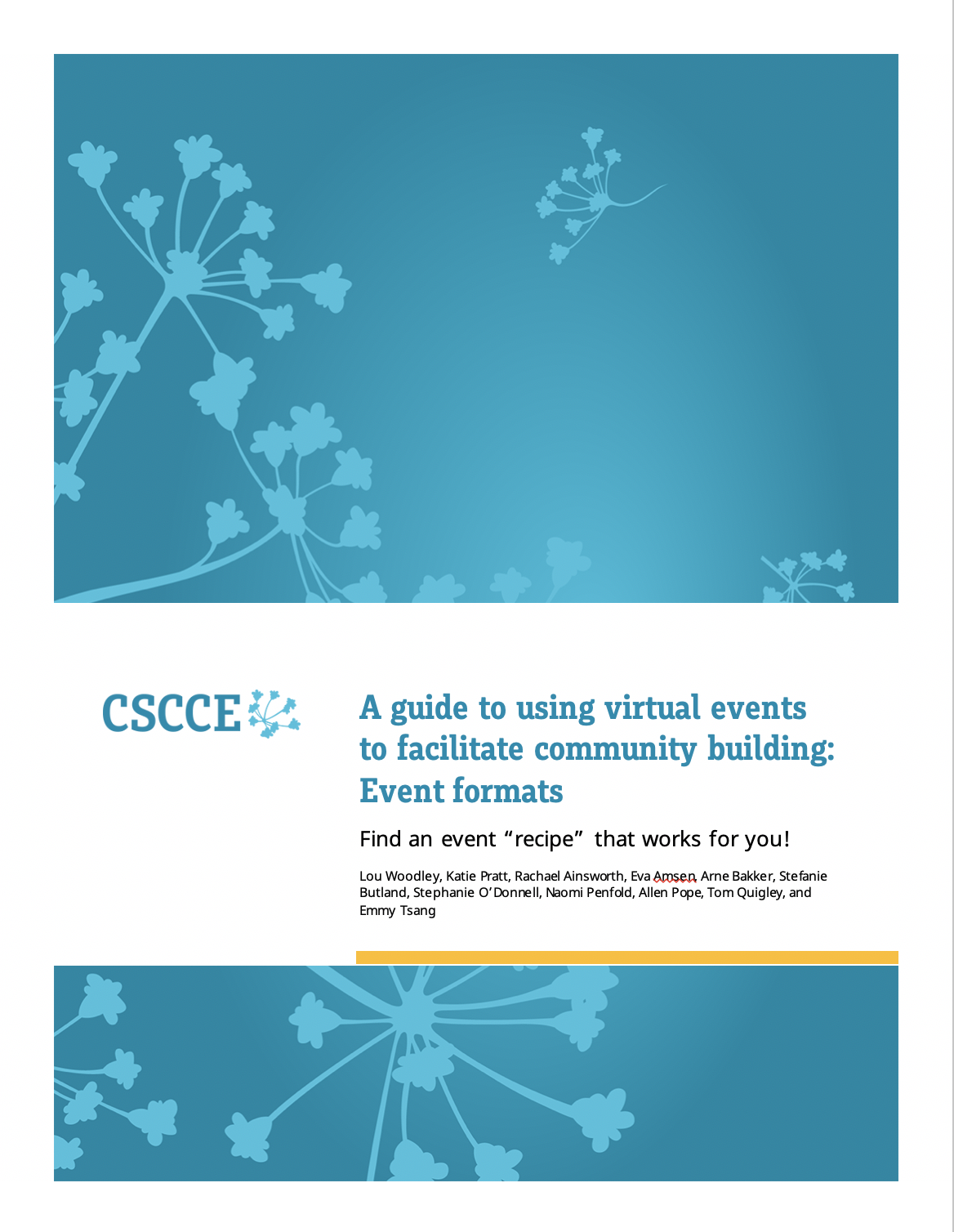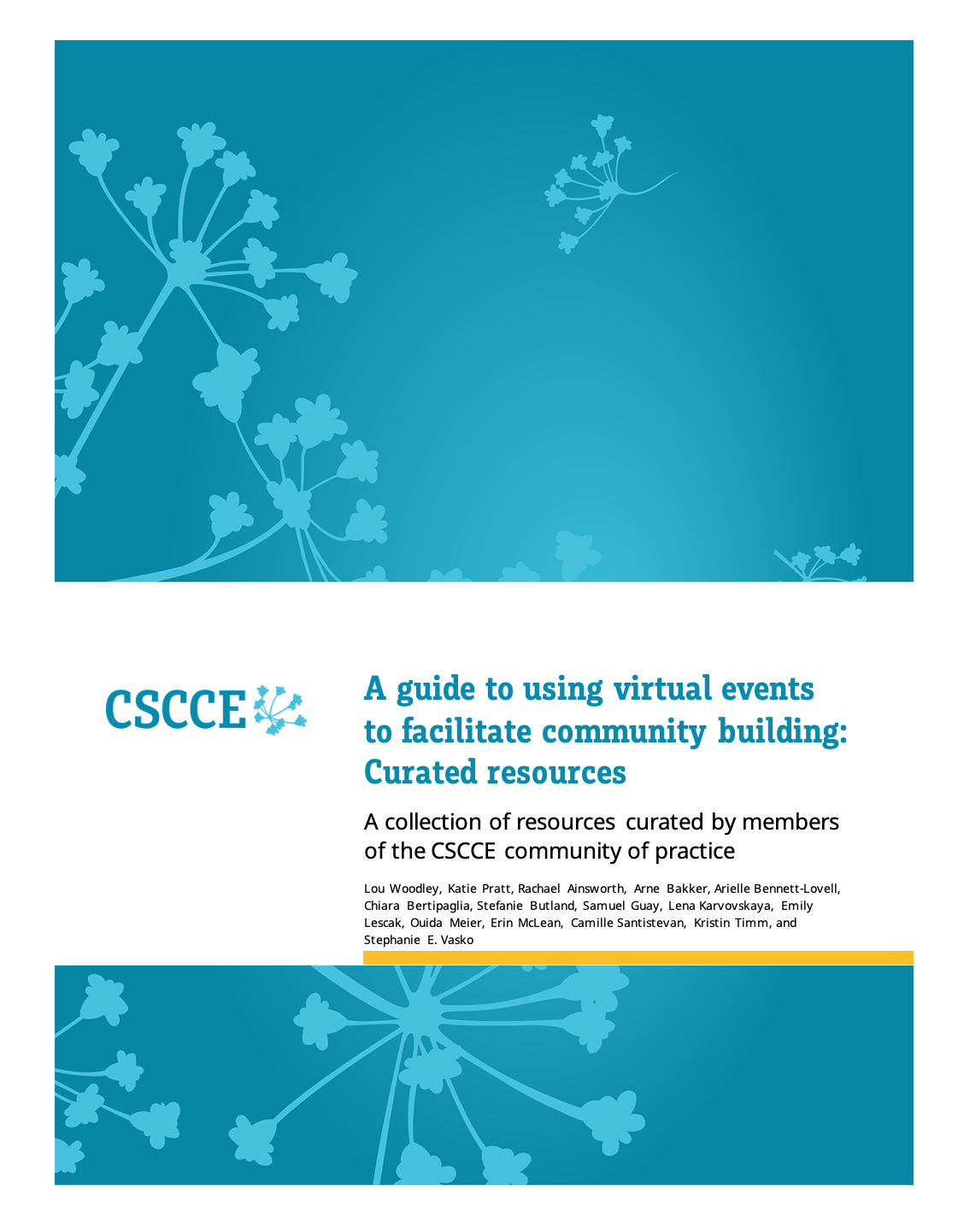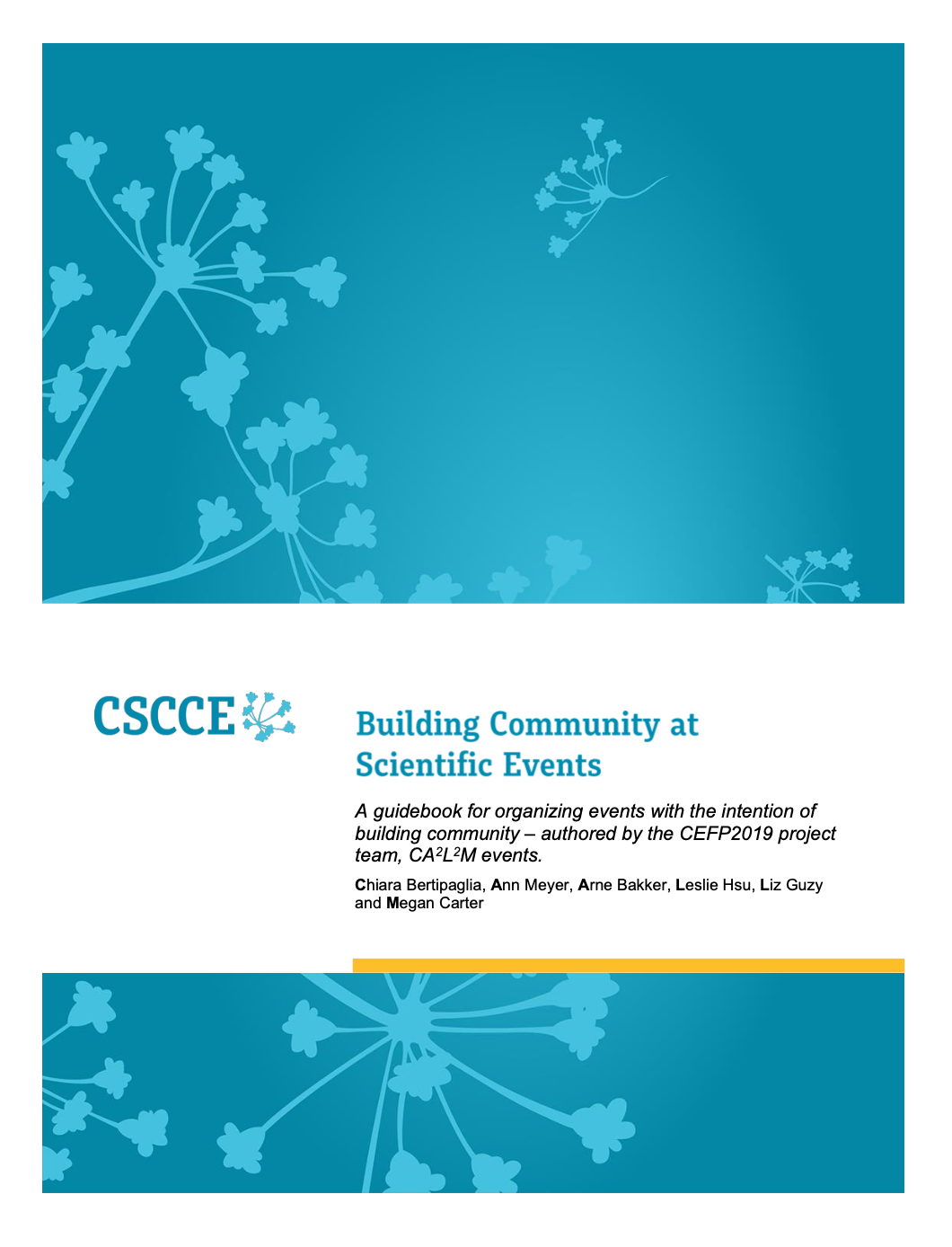Successful event programming is a feature of many communities – whether that’s a monthly community call or an annual conference. But how do you design events that are welcoming from the outset and that promote enjoyable, inclusive interactions between attendees?
Guidebook to virtual events
This guidebook was co-created with members of the CSCCE community of practice. We are releasing sections of the guide as they are published.
Using virtual events to facilitate community building: Event formats
by Lou Woodley, Katie Pratt, Rachael Ainsworth, Eva Amsen, Arne Bakker, Stefanie Butland, Stephanie O’Donnell, Naomi Penfold, Allen Pope, Tom Quigley, and Emmy Tsang
We created this guide to help you host successful online meetings that your attendees enjoy. Our emphasis is on engaging and inclusive events where attendees will feel able and motivated to participate and connect with others.
Using virtual events to facilitate community building: Curated resources
by Lou Woodley, Katie Pratt, Rachael Ainsworth, Arne Bakker, Arielle Bennett-Lovell, Chiara Bertipaglia, Stefanie Butland, Samuel Guay, Lena Karvovskaya, Emily Lescak, Ouida Meier, Erin McLean, Camille Santistevan, Kristin Timm, and Stephanie E. Vasko
In this section we focus on curating links to useful resources about virtual events – including case studies of conferences and trainings that moved online at short notice.
Guidebook to in-person events
The CALM events project team of Arne Bakker, Chiara Bertipaglia, Megan Carter, Liz Guzy, Leslie Hsu, and Ann Meyer from the CEFP2019 cohort created a comprehensive guidebook to organizing in-person events.
CALM events guidebook for building community through events
by Arne Bakker, Chiara Bertipaglia, Megan Carter, Elizabeth Guzy, Leslie Hsu and Ann Meyer
The CALM events guidebook is a comprehensive multi-chapter guide to planning and hosting events of different formats in order to build community.
Diversity, equity, and inclusion
Please see our DEI resource page for additional tip sheets and blog posts to help you consider ways to make your meetings inclusive and accessible.
Blog posts
Event formats
- Six tips for running a successful unconference – From having a code of conduct to planning how to capture content from the event, CEFP2017 Fellow, Stefanie Butland, shares things to plan ahead of time for a successful unconference.
- Dinner parties and sandpits – intensive retreats to catalyze scientific collaborations – CEFP2017 Fellow, Jennifer Davison, outlines different formats for offsite events designed to promote team-building.
- Book Dashes: Collaborative community events – in this guest blog post, Arielle Bennett-Lovell (a 2019 CSCCE Community Engagement Fellow) reflects on the third Turing Way Book Dash event.
Icebreakers and welcomes
- Pre-event interviews – In How to prepare 40 new community members for an unconference CEFP2017 Fellow, Stefanie Butland outlines the pre-event preparations that she carried out to help new members of the community feel prepared and welcome.
- Breaking the ice well – CEFP Fellows Allen Pope, Amber Budden, and Stefanie Butland and mentor Aidan Budd discuss facilitating interpersonal community interactions in person. In part one they describe several icebreaker activities and in part two they describe how to bring your community along with you in what can sometimes be a nerve-wracking activity for a community manager!
Event programming
- Leveraging anniversary programming and content to nurture community – CEFP2019 Fellow, Camille Santistevan, lists 5 top tips for event-planning around your organization’s anniversary events and 3 things to consider.
Transitioning in-person events ONLINE
- Going Online: How we organized the first ever virtual csv,conf – In a three-part series of guest blog posts, Serah Rono, Lilly Winfree, Jo Barratt, Elaine Wong, Jess Hardwicke, John Chodacki, and Jonathan Cain reflect on the challenges and opportunities of moving an international conference online.
Virtual tools trials
Our virtual tools trials bring together interested members of our community of practice to try out platforms that might be useful for convening communities online. Our tools trials are ongoing, so if you have a platform you’re interested in trying, or would like to co-host a trial and share your experience, please let us know by emailing info@cscce.org.
After each trial, we share a recap of our findings on our blog, each of which includes a link back to the full collaborative notes document from the trial. Find out more about:
- QiqoChat – a tool for online conferences
- Mural/Padlet/Jamboard – tools for brainstorming and ideation
- Gather – a conferencing and networking platform
- Etherpad+Video – a tool for collaborative writing with in-doc video chat
- Remo – a conferencing and networking platform
- Wonder – a lightweight, spatially-controlled, networking platform
Community call
In July 2020’s CSCCE community call we discussed “Planning and evaluating accessible online events” with three speakers from the CSCCE community of practice.
Speakers and their slides
- “It’s Dangerous To Go Alone, Take This – Non-Player Characters & Prepping For Your Virtual Event” – Tom Quigley, ConservationXLabs (slides)
- “It’s All About Access: Planning Meetings for Wider Audiences” – Rebecca Carpenter, Deaf and Hard of Hearing Virtual Academic Community (slides)
- “Evaluating Virtual Events” – Emily Lescak, Code for Science and Society (slides)
Summary and resources list
Check out the blog post recap of the call – including additional resources recommended by attendees.


